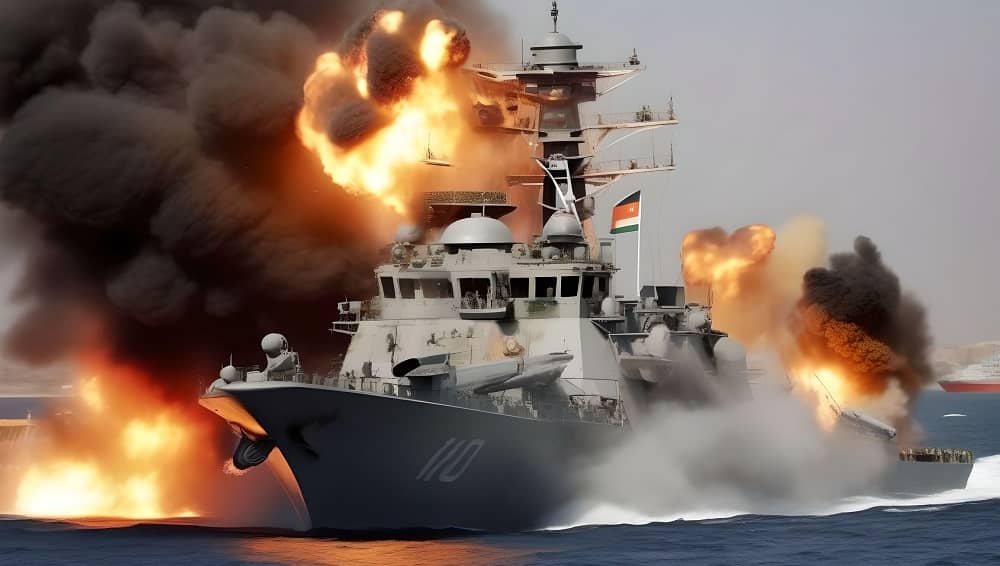
On January 1, 2024, the Iranian regime heightened regional tensions by dispatching its warship, the Alborz, to the Red Sea.
This move came in response to the Iran-backed Yemeni Houthi group’s increased attacks on commercial shipping. Western governments are attributing these hostile actions to Tehran, which continues to deny any involvement. The situation has led several shipping companies to reroute their vessels around the Horn of Africa, a lengthier and costlier alternative.
The Alborz’s presence in the Red Sea raises questions about Tehran’s denials, especially as it seems to be a direct challenge to the United States and its allies. The US has intensified its naval operations in the region since the Gaza conflict, successfully intercepting numerous missiles and drones.
On Sunday, a conflict escalated when Yemeni militants attempted to hijack the Maersk Hangzhou, a Singapore-flagged and Dutch-owned vessel. The attack, which included a missile strike, prompted a swift response from two American helicopters, resulting in the destruction of three Houthi boats and the death of at least ten militants. This incident marks the 23rd Houthi assault on commercial shipping since November 19.
Crisis and War in the #MiddleEast: The Roots and Solutions
Understanding the #Iranian regime’s Goals in the Crisishttps://t.co/nwhOvnj8w3— NCRI-FAC (@iran_policy) January 2, 2024
While these attacks have been largely thwarted, particularly by the U.S. Navy and Israel’s Iron Dome missile defense system, the cost of such defenses is becoming a concern. Politico reports that the U.S. Navy has shot down 38 drones and multiple missiles in the Red Sea in the past two months, with each naval missile costing up to $2.1 million.
Concurrently, Iran-backed groups have escalated attacks on American assets in Iraq and Syria. The Islamic Resistance in Iraq recently claimed responsibility for drone and rocket attacks, leading to U.S. retaliation and the death of six militants in eastern Syria.
The involvement of Hezbollah, a Lebanese proxy for Iran, in these conflicts further implicates Tehran in regional disturbances. This escalation comes amidst internal challenges in Iran, including economic hardships and social unrest. Supreme Leader Khamenei appears to be escalating regional conflict in an attempt to deflect from these domestic issues.
Watch a 7 min recap of:
Crisis and War in the #MiddleEast: The Roots and Solutions
Understanding the #Iranian regime’s Goals in the Crisis pic.twitter.com/oikos96Kxu— NCRI-FAC (@iran_policy) January 2, 2024
Western nations, preoccupied with their own electoral and economic problems, are hesitant to engage in a major Middle East conflict. However, Tehran’s actions might dictate the course of events. The West is urged to reconsider its approach, focusing on Iran’s vulnerabilities rather than capitulating to its aggressive tactics. Acknowledging and supporting the Iranian people’s resistance could be key to preventing another major conflict in this tumultuous region.

MEK Iran (follow us on Twitter and Facebook), Maryam Rajavi’s on her site, Twitter & Facebook, NCRI (Twitter & Facebook), and People’s Mojahedin Organization of Iran – MEK IRAN – YouTu
